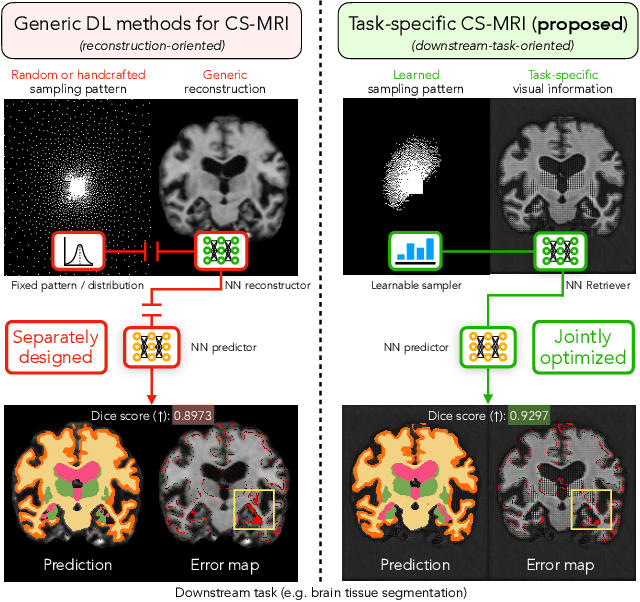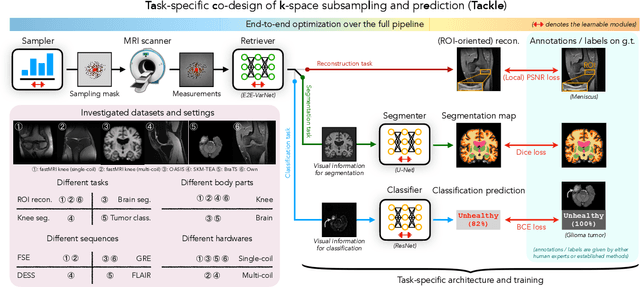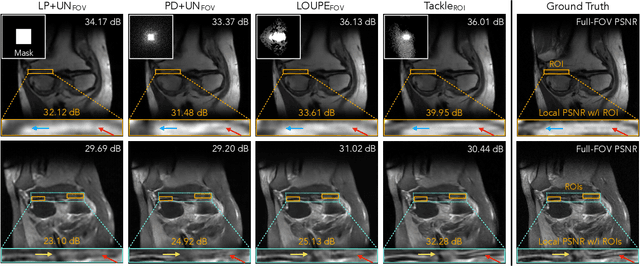Robert Frost
Learning Task-Specific Strategies for Accelerated MRI
Apr 25, 2023



Abstract:Compressed sensing magnetic resonance imaging (CS-MRI) seeks to recover visual information from subsampled measurements for diagnostic tasks. Traditional CS-MRI methods often separately address measurement subsampling, image reconstruction, and task prediction, resulting in suboptimal end-to-end performance. In this work, we propose TACKLE as a unified framework for designing CS-MRI systems tailored to specific tasks. Leveraging recent co-design techniques, TACKLE jointly optimizes subsampling, reconstruction, and prediction strategies to enhance the performance on the downstream task. Our results on multiple public MRI datasets show that the proposed framework achieves improved performance on various tasks over traditional CS-MRI methods. We also evaluate the generalization ability of TACKLE by experimentally collecting a new dataset using different acquisition setups from the training data. Without additional fine-tuning, TACKLE functions robustly and leads to both numerical and visual improvements.
Data Consistent Deep Rigid MRI Motion Correction
Jan 25, 2023



Abstract:Motion artifacts are a pervasive problem in MRI, leading to misdiagnosis or mischaracterization in population-level imaging studies. Current retrospective rigid intra-slice motion correction techniques jointly optimize estimates of the image and the motion parameters. In this paper, we use a deep network to reduce the joint image-motion parameter search to a search over rigid motion parameters alone. Our network produces a reconstruction as a function of two inputs: corrupted k-space data and motion parameters. We train the network using simulated, motion-corrupted k-space data generated from known motion parameters. At test-time, we estimate unknown motion parameters by minimizing a data consistency loss between the motion parameters, the network-based image reconstruction given those parameters, and the acquired measurements. Intra-slice motion correction experiments on simulated and realistic 2D fast spin echo brain MRI achieve high reconstruction fidelity while retaining the benefits of explicit data consistency-based optimization. Our code is publicly available at https://www.github.com/nalinimsingh/neuroMoCo.
 Add to Chrome
Add to Chrome Add to Firefox
Add to Firefox Add to Edge
Add to Edge